Discover Your Roots
SIGN UPDiscover Your Roots
SIGN UPFriedrich is a male name of German origin, meaning "Peaceful Ruler." It is a popular given name in Germany and is the origin of the English name Frederick. Notable figures with this name include Friedrich Hölderlin, a key figure in German Romanticism, Friedrich Nietzsche, a influential German philosopher, and Friedrich Engels, a German political philosopher and co-developer of Marxist theory. The name has deep roots in various fields such as arts, music, philosophy, and other areas, with individuals like Friedrich Schiller, Friedrich von Utrecht, and Friedrich Wöhler making significant contributions. Friedrich is a name that conveys strength and peace, making it a timeless and meaningful choice for parents seeking a name with historical and cultural significance.
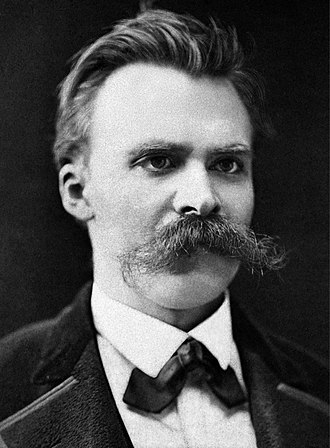
Friedrich Wilhelm Nietzsche, born on October 15, 1844, was a highly influential German philosopher known for his radical critiques and thought-provoking works. Initially a classical philologist, Nietzsche transitioned to philosophy early in his academic career and became the youngest professor to hold the Chair of Classical Philology at the University of Basel. Throughout his life, he battled numerous health issues, leading to his resignation from the university in 1879. Despite his struggles, Nietzsche produced a significant body of work, encompassing philosophical polemics, cultural criticism, and fiction, often characterized by aphorism and irony. His philosophy delved into themes such as perspectivism, the critique of religion and morality, the affirmation of life in the face of nihilism, and the concept of the Übermensch. Nietzsche's ideas have had a profound impact on 20th- and early-21st-century thinkers, influencing fields such as philosophy, art, literature, music, and politics. Despite the misrepresentation of his work by his sister following his death, Nietzsche's thought has been defended and re-evaluated by scholars, experiencing a resurgence in popularity in the 1960s and continuing to shape contemporary philosophical discourse.
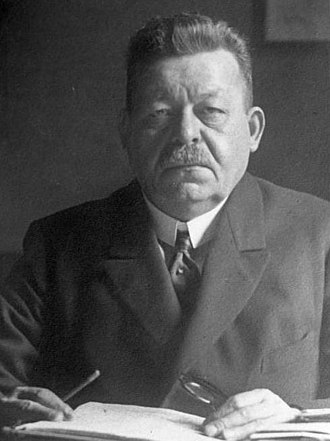
Friedrich Ebert (1871-1925) was a prominent German politician and the first president of Germany from 1919 until his death. He rose to leadership within the Social Democratic Party (SPD) and played a significant role in the party's evolution, particularly during World War I and the German revolution of 1918–1919. Ebert's moderate social democratic stance led to both support and controversy within the party, as he navigated the complexities of wartime politics and post-war reconstruction. Born in Heidelberg, Ebert's early life was marked by financial hardship, leading him to pursue a career as a saddle-maker before becoming involved in socialist and union activities. His political career saw him elected to the Reichstag and later assuming leadership roles within the SPD. Ebert's decision to support war loans during World War I and his subsequent alliances with conservative and nationalistic forces have made him a controversial figure in history. Despite this, his presidency marked a pivotal period in Germany's transition to a republic. Ebert's legacy is intertwined with his efforts to restore order in post-war Germany, albeit through alliances and policies that continue to spark debate and discussion.
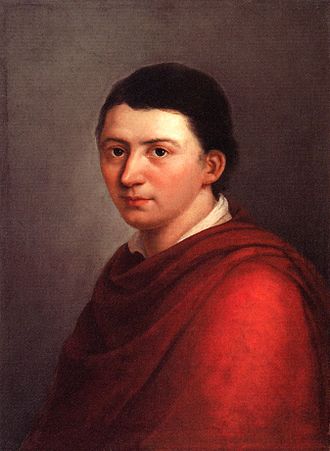
Karl Wilhelm Friedrich von Schlegel (1772-1829) was a renowned German poet, literary critic, philosopher, and philologist, a significant figure of Jena Romanticism. Born into a Protestant family, Schlegel initially rejected religion in favor of atheism and individualism. He pursued classical literature instead of law, establishing himself as a writer and lecturer. However, in 1808, he returned to Christianity, leading to his estrangement from family and friends. Moving to Austria in 1809, he served as a diplomat and journalist for the Austrian Empire. Schlegel's influence extended to the Romantic movement, inspiring notable figures like Samuel Taylor Coleridge and Adam Mickiewicz. Additionally, he made pioneering contributions to Indo-European studies and comparative linguistics, formulating the first theory linking Indo-Iranian and German languages under the Aryan group. Beyond his intellectual pursuits, Schlegel's works were set to music by renowned composers such as Schubert, Mendelssohn, and Schumann. His legacy remains influential in literary and linguistic spheres, reflecting his profound impact on the Romantic era and scholarly pursuits.
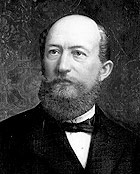
Friedrich Bayer (1825-1880) was a German entrepreneur known for founding Bayer, a prominent chemical and pharmaceutical company. Born as Friedrich Beyer, he established the dyestuff factory Friedrich Bayer in 1863 in Elberfeld, alongside Johann Friedrich Weskott. Notably, Bayer altered the spelling of his surname from Beyer to Bayer during his early twenties to distance himself from a fraudulent merchant with a similar name. This decision was influenced by concerns that the other Beyer's notoriety could harm his business prospects. Bayer's legacy continues to thrive through the enduring success of the company he founded. Learn more about Friedrich Bayer and his contributions to the chemical and pharmaceutical industries.
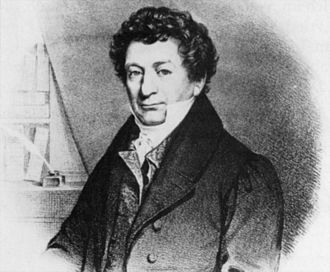
Friedrich Wilhelm Adam Sertürner (19 June 1783 – 20 February 1841) was a renowned German pharmacist and a trailblazer in alkaloid chemistry. He is celebrated for his groundbreaking discovery of morphine, which he extracted from opium in 1804, and for his extensive research on its physiological effects, including self-experiments. Born in Neuhaus, Holy Roman Empire, Sertürner apprenticed at the Cramersche Hofapotheke in Paderborn before accomplishing the isolation of morphine from opium. His comprehensive paper on morphine's properties and crystallization, coupled with his self-experimentation, solidified his pioneering status in alkaloid chemistry. Throughout his career, Sertürner established and managed pharmacies, delved into military-related projects, and contributed to the understanding of cholera. Despite his scientific contributions, Sertürner's personal life was marred by health issues and potential addiction to morphine. His legacy lives on through his pivotal role in the discovery and understanding of morphine.
All images displayed on this page are sourced from Wikipedia or Wikimedia Commons.We use these images under their respective Creative Commons or public domain licenses. Wherever applicable, author attributions and license information are provided. If you believe an image is used incorrectly or outside its license terms, please contact us so that we can review and correct the issue.